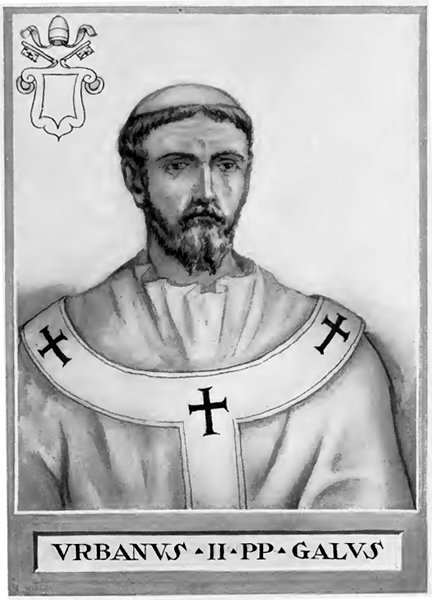Pope Urban II

The person who would become Pope Urban II was born around 1035 to a noble family in northern France. Educated at a school associated with the Reims cathedral, he eventually became their canon and archdeacon. Shortly after 1067, he left for the abbey of Cluny. By 1074, he was the grand prior there, the second-in-command. Later he became the cardinal associated with Ostia. In the winter of 1084-5, he worked in Germany as a papal legate, trying to maintain support for Pope Gregory VII in the struggle with the Holy Roman Emperor. After Gregory's death and the short papacy of Victor III, Urban was elected pope on March 12, 1088 but was in exile at the time. He continued to regain support and finally was able to enter Rome in 1094. Before and during his papacy, Urban was a member of a reform movement that wanted the clergy to be more removed from "worldly values" and influences, bringing life in general, closer to life in a monastery.
The First Crusade (as well as later ones) can be seen as one attempt to realize this vision.
In the first week of March 1095, a delegation from the Byzantine emperor Alexius I Comnenus presented Urban with a request for help against the Turks. Pope Urban II's response was to preach the First Crusade, starting on November 27, 1095, at the Council of Clermont. This first preaching was geared explicitly to the French, those all others who wished to participate were encouraged--unless of course, they were from Spain. (The Spanish were encouraged to fight the Muslims in Spain instead of in the middle east.)